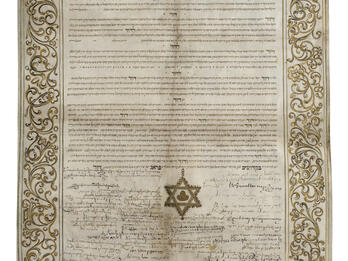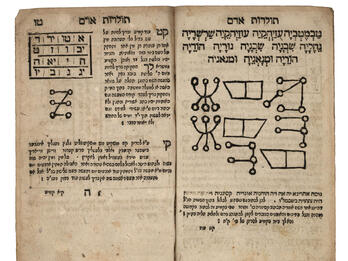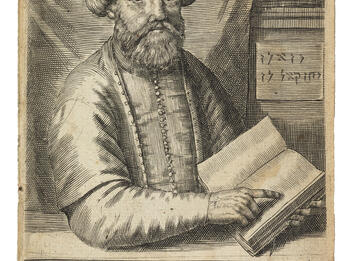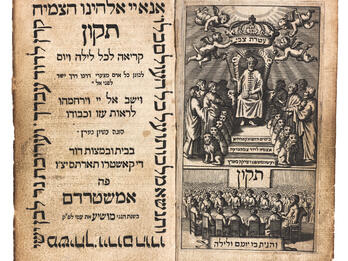Letter of Conversion
Shabbetai Tzvi
1666
My brothers, my children, and my friends know this: I understood with great clarity that the True One, whom I alone have known for many generations and for whom I have strived so much, wants me to enter the religion of the Ishmaelites, the Law of Islam with all my heart. To permit what it permits and to forbid what it forbids and to abolish the…

Related Guide
Early Modern Rabbis and Intellectuals on the Move
Carrying books and knowledge, itinerant rabbis and scholars traveled between communities, facilitating cultural exchange.
Related Guide
The Rise of Kabbalah
Kabbalah spread widely after the Spanish expulsion. The Zohar's printing in Italy, Safed's influential kabbalistic center, and Shabbetai Tzvi's messianic movement popularized mystical ideas across Jewish communities.

Related Guide
Early Modern Spiritual Ideologies
Early modern Jewish spiritual life encompassed diverse elements, including theology, ethics, liturgy, and messianism.
Creator Bio
Shabbetai Tzvi
Shabbetai Tzvi was the central figure of the most momentous messianic movement in Jewish history since the fall of the Second Temple, Sabbateanism. A gifted student, as an adolescent Shabbetai Tzvi embarked on the study of kabbalah, leading a life of abstinence and solitude. His moods swung between great lows and highs (illuminations): during the latter phases he committed strange acts contrary to religious law. In 1648, he declared himself to be the Messiah. His strange behavior at first aroused compassion but he was eventually banished from his hometown of Smyrna and subsequently from other communities. He married a woman named Sarah, who was orphaned during the 1648 uprisings. In 1662, he settled in Jerusalem and later traveled to meet Nathan of Gaza, who had already seen in a vision that Shabbetai Tzvi was the Messiah. In 1665, encouraged by Nathan, Shabbetai Tzvi declared himself Messiah, quickly amassing followers throughout North Africa and Europe. It was widely believed that 1666 would be the apocalyptic year. However, in that same year, Shabbetai Tzvi was arrested by the Ottoman authorities and, threatened with death, converted to Islam. He was abandoned by all but his most faithful followers, yet the Sabbatean movement continued to exist, causing controversies throughout the Jewish world.
You may also like

Portrait of Shabbetai Tzvi



